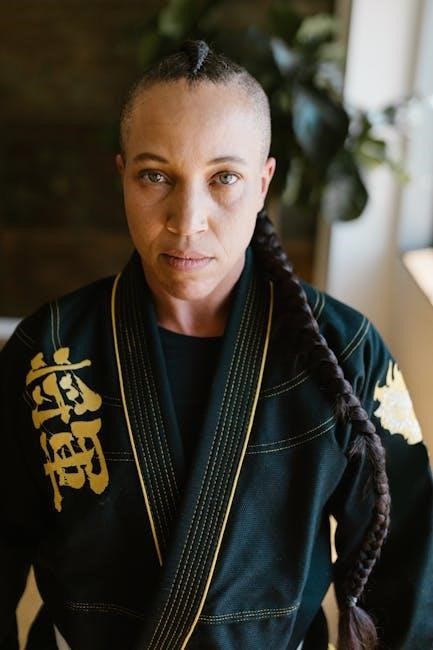Verbal Judo is a communication strategy focusing on redirecting behavior through words. It emphasizes de-escalation, cooperation, and conflict resolution, benefiting professionals and individuals alike.
1.1 Definition and Purpose of Verbal Judo
Verbal Judo is a tactical communication approach developed by Dr. George J. Thompson, focusing on redirecting behavior through words. It teaches how to de-escalate conflicts, foster cooperation, and resolve disputes peacefully. The purpose is to empower individuals with effective verbal strategies, transforming potentially volatile interactions into constructive outcomes. This philosophy emphasizes preparedness in every verbal encounter, ensuring clarity, respect, and understanding.
1.2 Historical Background and Development
Verbal Judo was developed in the 1980s by Dr. George J. Thompson, a former English professor and police officer. Initially designed for law enforcement, it aimed to equip officers with communication skills to de-escalate conflicts. Over time, its applications expanded to various professions, emphasizing tactical communication and conflict resolution. The approach has evolved into a widely recognized system for managing verbal encounters effectively in diverse settings.
The Founder of Verbal Judo
Dr. George J. Thompson, a former English professor and police officer, founded Verbal Judo. His innovative approach to communication has revolutionized conflict resolution and tactical dialogue.
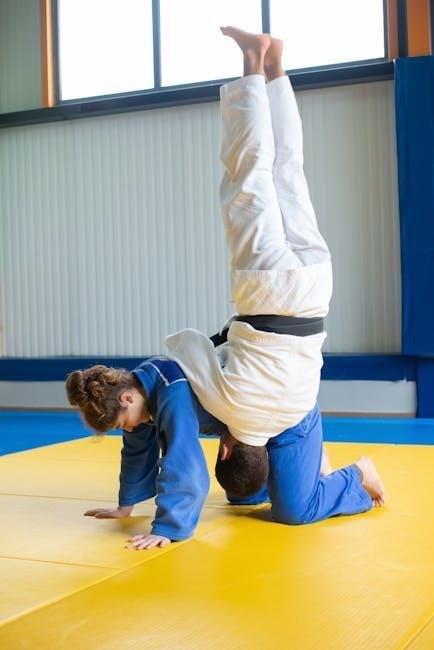
2.1 George J. Thompson: Biography and Contributions
Dr. George J. Thompson, a former English professor and police officer, pioneered Verbal Judo. His career transition from academia to law enforcement inspired his development of tactical communication strategies. Thompson’s contributions include creating the Verbal Judo Institute and authoring “Verbal Judo: The Gentle Art of Persuasion;” His work has significantly impacted conflict resolution, benefiting law enforcement and beyond, by teaching effective dialogue and de-escalation techniques.
2.2 Thompson’s Philosophy and Approach to Communication
Dr. Thompson’s philosophy centers on the power of words to redirect behavior and de-escalate conflicts. He emphasizes tactical communication, teaching individuals to engage effectively in verbal encounters. His approach focuses on empathy, active listening, and strategic language use to guide interactions toward positive outcomes.
Thompson’s methods are rooted in real-world applications, particularly in law enforcement, where de-escalation is critical. His philosophy empowers individuals to resolve conflicts peacefully, fostering cooperation and understanding in high-stress situations.

Key Principles of Verbal Judo
Verbal Judo focuses on redirecting behavior through strategic communication; It emphasizes the LEAPS model and the 5 Universal Truths to de-escalate conflicts and foster cooperation effectively.
3.1 Redirecting Behavior with Words
Verbal Judo teaches techniques to redirect behavior through strategic communication. By using words to de-escalate conflicts, listeners can influence others without force. The approach emphasizes active listening, empathy, and tactical language to guide interactions positively. This method is particularly effective in law enforcement and everyday situations, helping to resolve tensions and foster cooperation through mindful communication.
3.2 Tactical Communication Strategies
Tactical communication strategies in Verbal Judo involve planned, adaptive approaches to manage conversations. Techniques include active listening, empathy, and calibrated responses to defuse tension. These strategies empower users to navigate high-stakes interactions effectively. By aligning words with desired outcomes, Verbal Judo ensures clear, persuasive communication, enhancing professional and personal interactions significantly.
The Verbal Judo Institute
The Verbal Judo Institute, founded in 1984 by George J. Thompson, specializes in training professionals in tactical communication. Its mission is to empower individuals with conflict resolution and de-escalation skills, fostering positive interactions across various fields.
4.1 Overview of the Institute and Its Mission
The Verbal Judo Institute, established by Dr. George J. Thompson in 1984, focuses on teaching tactical communication and conflict resolution. Its mission is to equip professionals with skills to de-escalate tensions and foster cooperation. The institute offers specialized training programs, particularly for law enforcement, aiming to enhance community safety and improve interpersonal interactions through effective verbal strategies.
4.2 Training Programs and Modules
The Verbal Judo Institute offers comprehensive training programs designed to enhance communication skills. These modules include the LEAPS model, tactical strategies, and real-life applications. Participants learn de-escalation techniques and conflict resolution methods. The programs are tailored for law enforcement, businesses, and individuals, focusing on practical implementation to improve outcomes in high-stress situations and everyday interactions.
Applications of Verbal Judo
Verbal Judo is widely applied in law enforcement, business, and personal relationships. It helps de-escalate conflicts, improve communication, and foster cooperation in diverse professional and social settings effectively.
5.1 Law Enforcement and Conflict Resolution
Verbal Judo is crucial in law enforcement for de-escalating tense situations. Officers use tactical communication to redirect behavior, ensuring safety and cooperation. This approach minimizes physical confrontations, fostering trust and resolving conflicts effectively. It equips officers with skills to handle high-stress scenarios professionally, protecting both themselves and the public. The strategy emphasizes empathy and precision in dialogue to achieve peaceful outcomes consistently.
5.2 Business and Personal Relationships
Verbal Judo enhances communication in business and personal relationships by fostering mutual respect and cooperation. It teaches strategies to diffuse tension, navigate conflicts, and build rapport. In professional settings, it aids in negotiations and leadership, while in personal relationships, it strengthens connections by promoting active listening and empathy. This approach ensures constructive dialogue, resolving disputes amicably and maintaining harmony in both professional and personal interactions.
Techniques and Strategies
Verbal Judo employs the LEAPS model and 5 Universal Truths to de-escalate conflicts and foster effective communication. These strategies empower individuals to redirect behavior and resolve disputes constructively.
6.1 The LEAPS Model and Its Implementation
The LEAPS model, a core component of Verbal Judo, stands for Listen, Empathize, Ask, Paraphrase, and Summarize. It teaches individuals to actively engage in conversations, understand perspectives, and de-escalate tensions through strategic communication. By implementing these steps, users can redirect behavior, build rapport, and resolve conflicts effectively. This method is widely used in law enforcement and everyday interactions to foster cooperation and understanding.
6.2 The 5 Universal Truths of Verbal Judo
The 5 Universal Truths of Verbal Judo are foundational principles designed to guide effective communication. They include understanding that people prefer to be asked rather than told, seeking voluntary compliance, respecting others’ dignity, staying calm under pressure, and avoiding blame. These truths help individuals navigate conflicts, build trust, and achieve positive outcomes in various situations, from law enforcement to personal interactions.
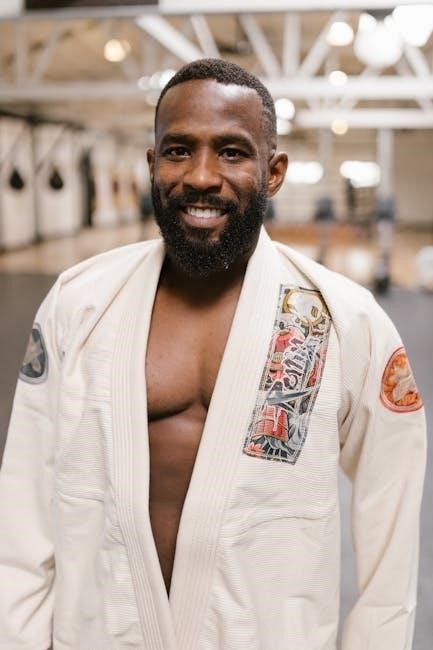
The Verbal Judo PDF Resource
The Verbal Judo PDF is a comprehensive guide by Dr. George J. Thompson, offering techniques for conflict resolution and effective communication. It is available on platforms like Open Library and provides practical strategies for law enforcement, business, and personal interactions, helping readers master verbal de-escalation and persuasion.
7.1 Overview of the PDF Guide
The Verbal Judo PDF guide, authored by Dr. George J. Thompson, provides a detailed system for managing conflicts and improving communication. It includes practical strategies, real-life examples, and techniques like the LEAPS model, helping readers understand how to redirect behavior and de-escalate tense situations. The guide is accessible on platforms such as Open Library and offers valuable insights for professionals and individuals seeking to enhance their communication skills.
7.2 Benefits of the PDF for Readers
The Verbal Judo PDF offers readers proven techniques to defuse conflicts and improve communication. It provides practical tools for professionals, such as law enforcement, to handle high-stress situations effectively. The guide also helps individuals enhance personal relationships and workplace interactions by fostering cooperation and understanding. Its clear, actionable strategies make it an invaluable resource for anyone seeking to master the art of persuasive communication.
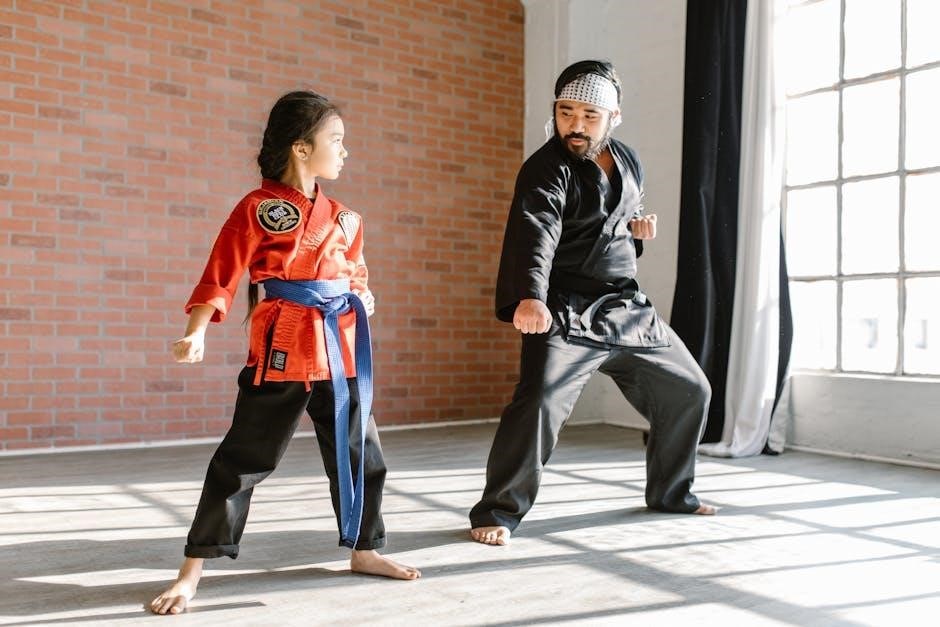
Testimonials and Case Studies
Testimonials and case studies highlight Verbal Judo’s effectiveness in real-life scenarios, showcasing its impact on conflict resolution and communication skills across various professions.
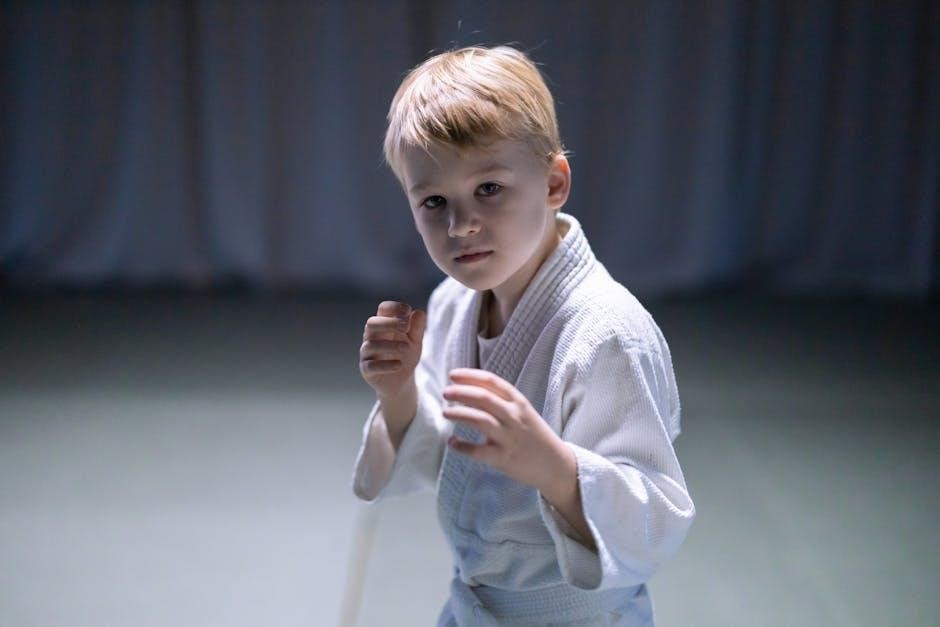
8.1 Success Stories from Law Enforcement
Law enforcement agencies worldwide have adopted Verbal Judo, leading to significant reductions in conflict escalation. Officers report enhanced communication skills, improved de-escalation techniques, and safer interactions. Case studies highlight situations where verbal strategies successfully resolved tense encounters, preventing physical confrontations and fostering trust between officers and the communities they serve. These successes underscore Verbal Judo’s practical and measurable impact.
8.2 Real-Life Applications and Effectiveness
Real-life applications of Verbal Judo demonstrate its effectiveness in high-stakes environments. From diffusing tense situations in law enforcement to resolving workplace conflicts, the technique has proven invaluable. Personal accounts reveal how strategic communication fosters cooperation and reduces aggression. The approach’s universal truths and tactical strategies create a framework for effective dialogue, making it a versatile tool for everyday and professional interactions alike, ensuring safer and more productive outcomes.
Verbal Judo revolutionizes communication, offering proven strategies for conflict resolution. Its techniques, empirically tested in law enforcement, empower individuals to de-escalate tensions and foster cooperation effectively.
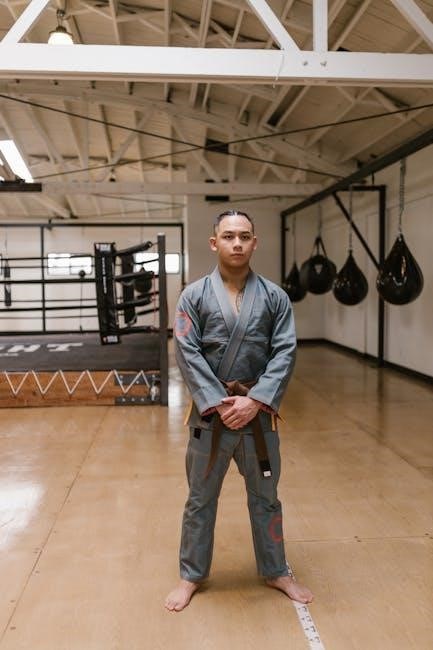
9.1 The Impact of Verbal Judo on Modern Communication
Verbal Judo has significantly influenced modern communication by providing practical tools for de-escalation and conflict resolution. Its principles, such as active listening and tactical language, are widely adopted across law enforcement, business, and personal interactions. The approach emphasizes empathy and clarity, fostering mutual understanding and cooperation in diverse situations. Its effectiveness has made it a cornerstone of professional and personal communication strategies.
9.2 Final Thoughts and Encouragement to Learn More
Verbal Judo offers transformative communication skills, empowering individuals to navigate conflicts with empathy and precision. Its principles have proven invaluable across professions, fostering cooperation and understanding. For those seeking to enhance their interpersonal abilities, exploring resources like the Verbal Judo PDF provides a comprehensive guide. Embrace this powerful system to master the art of persuasion and conflict resolution, elevating your personal and professional interactions.
